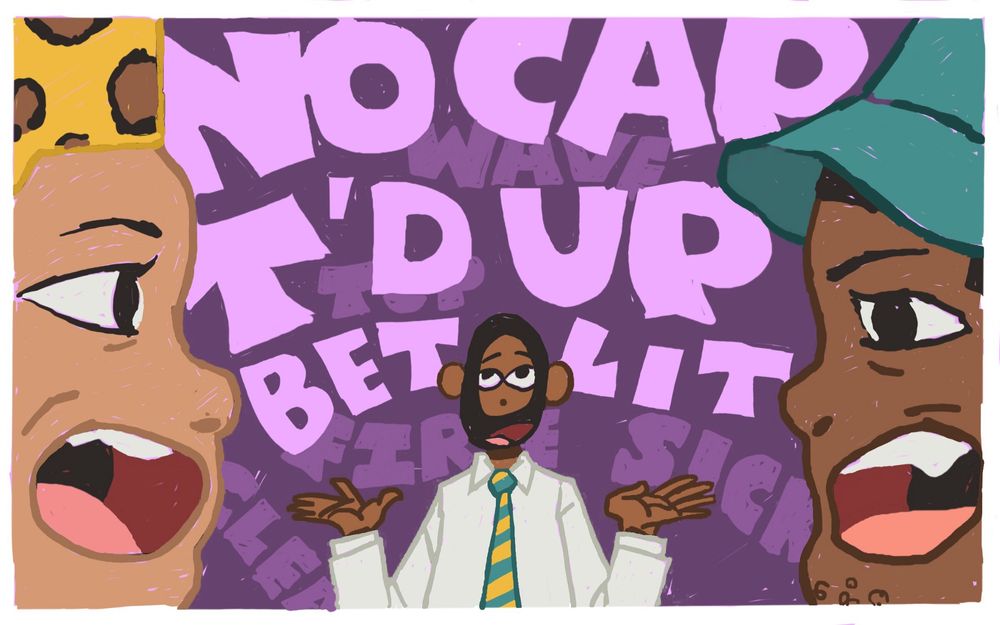I’m 33 years old. It’s a weird age, teetering between being in touch and stuck in my ways. And I know I’m not the only one standing at the intersection of young buck and old head. Every time something comes along, whether it’s slang or pop culture or a new tech platform, you confront the same question: Am I too old for this? That’s why I’m here — to work through these conundrums on your behalf on a weekly basis. Together, hopefully, we can face some harsh truths about our own washed-ness.
Last semester, I was talking to my Morehouse students about the upcoming homecoming celebrations. This is a ritual of sorts for me; as a relatively young professor, I get to talk to my students about things they actually care about, whether it’s a Young Thug campus concert or more casual plans. Partying in college wasn’t that long ago for me, so these conversations help me connect. I love them.
This particular homecoming conversation, though, took a turn that I wasn’t prepared for.
“Yeah,” said one of my students, “we’re getting T’d this weekend.”
“T’d?” I assumed I’d misheard him, so I kept it moving.
But a few minutes later, he said it again: “Yeah, we’re getting T’d up this weekend.”
By then, it was clear he was saying something I’d never heard before. Which meant I had a choice to make, and my inner dialogue kicked in:
It’s all good; no one knows I’m oblivious. I can Google it later. But how do you spell that? Teed? Tea’d? Is he drinking a lot of sweet tea? Man, that sounds delicious. Should I warn him about the risks of diabetes? No, it can’t be about sweet tea. There aren’t even any context clues! What if he’s talking about drugs? Is recreational testosterone a thing? What if T is short for, like, Tylenol? Lots and lots of Tylenol. Kids will turn anything into drugs, especially actual drugs. Is this a cry for help? I have to step in. Maybe I can save his life!
“Excuse me, are you saying ‘teed up?’ Like… golf?”
I probably shouldn’t have said that last part. But it was too late; I watched the respect my students once had for me leave their bodies like they’d just lost a fight with Shang Tsung.
“No, man,” he said. “T’d up. Like turnt up. People are going to be getting turnt up this weekend.” And then, with the disappointment of a thousand dunk contest Aaron Gordons, he delivered the death blow: “It’s a thing we say. You wouldn’t understand.”
That “we” was doing a lot there. “We” was young people. Kids with something to live for. People who still had a fervor for learning new ways to communicate with their peers. “We” was the people not still set in their ways.
Remember watching “Belly” and thinking you’d say “one” after every conversation? Or calling someone “woadie” because of the Hot Boys?
The average human stops integrating new words to use in everyday conversation by the age of 29. You didn’t know that, right? Probably not, because I made it up. But it seems about right — especially when an actual, real-life fact is that the average human brain stops developing around 25. That’s probably right around the age my own slang repertoire calcified for good.
But why? I think that’s because slang is a series of words we grow up with and love. We hear them so often in school and neighborhoods that they start to attach themselves to moments and memories. When I moved to Mississippi as a kid, I remember hearing the word “’flicted” and thinking that was the most Mississippi word I’d ever heard. Then as I started to use the word — which I assume is short for “afflicted” and was used when someone threw a ball crooked — I felt Mississippi becoming more like home.
Even the slang we never quite internalized carries emotional weight. Remember watching Belly and thinking you’d say “one” after every conversation? Or calling someone “woadie” because of the Hot Boys? There’s a beauty to the way slang brings feeling.
On the other hand, as I write this, I find myself struggling to even think of slang words I use — not because I don’t but because they’re so embedded in my language. They don’t feel like words I think to use; they’re just words. They’re reflex.
Which is exactly why it’s so hard to use new slang words as we get older. We just don’t attach ourselves to them, and they don’t meld with our consciousnesses. I didn’t grow up saying “cap” or “no cap,” and I feel silly as hell trying to say it now. (I know “cap” has been around forever, but not where I came up, so it felt foreign to me even as it swept through hip-hop.) And I damn sure won’t ever be saying “T’d up.” Hell, I only say “lit” ironically. Best believe I’ll still throw out a “wack” from time to time, though. No remorse.
There’s one exception to this rule, though, and that’s in written form. There is nothing better than dabbling in new slang when you don’t have to deal with the awkwardness of feeling the words leave your lips as your brain tries to tell you to take it back. I love typing out emojis, caps, turnt, or any other ridiculous phrase that the kids are saying these days. It brings me joy to at least electronically embrace the absurdity of slang in perpetuity.
Hell, I might even say “T’d up” next week if I’m feeling froggy.
